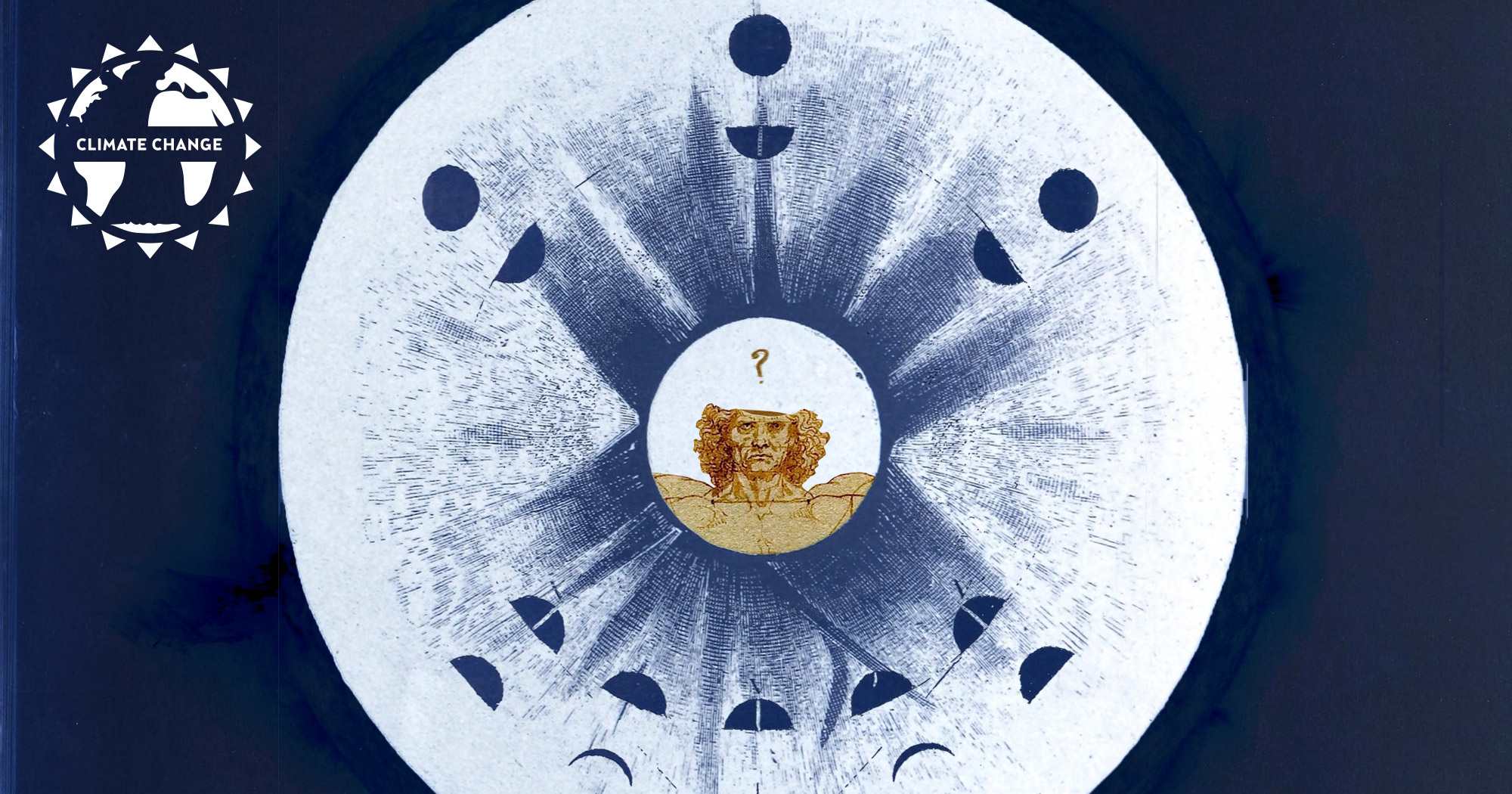Government Science/Truth Denial and the Whys & Whats & Hows of Moon Energy

Editor’s Note: This commentary by Editor in Chief Matt Sutherland part of our ongoing #IndieVoices series of commentaries and features in the month of March focusing on Climate Change. Read the introduction to the series here.
If your life depended on it, could you explain the basic elements of the earth-moon-sun relationship? What’s rotating around what? How long do the rotations take? Why the sun appears in the east? What causes the new, half, and full stages of the moon?
And what about here on earth? Do you have your brain wrapped around seasons and solstices, tides and gravity, wind and weather systems?
Keep your answers to yourself, but note that a sizable percentage of Americans don’t have a good sense of the daily planetary and meteorological events that take place right in front of their noses. And that collective shrug of shoulders about their earthly ignorance helps explain attitudes about global warming—a level of complexity several pay grades above basic earth science questions.
Earlier this month, Scott Pruitt, our new head of the Environmental Protection Agency, spit a big Oklahoma loogie in the eye of thousands of climate scientists when he said, “I would not agree that [human activity] is a primary contributor to the global warming that we see.” With bachelor degrees in political science and communications and a law degree, Pruitt is wildly unqualified for his position at the EPA, or to weigh in on greenhouse gases, etc., but his indifference to the evidence won’t stop him from dismantling the climate change regulations put in place by the Obama administration.
Many decades of established climate research is available to Pruitt, though he’d like to see scientists and researchers “continue the review and analysis,” even as he works to cut funding to the agencies and programs that do the needed research, even while it’s abundantly clear he has no plans to review or analyze anything but the political contributions being pumped at him by the oil and gas industry. Trump has tasked him with gutting regulations that give the federal government more authority to protect rivers and streams, curb pollution from coal-fired power plants, enforce fuel economy regulations, and monitor methane gas emissions, and Pruitt aims to please his boss. Maybe deregulating makes these guys more regular.
As has happened so often these past few months, I look at a science/truth denier like Pruitt and wonder what can possibly make a powerful, intelligent man in the twenty-first century, someone who is willing to rely on things like jet aircraft, PET scanners, wireless communication, and countless other impossibly complex machines (conceived and built by scientists and engineers), decide that he knows better than the climate science experts? And yet, in my cynical heart, I know the reason Pruitt arrived at his global warming position: he absolutely, positively refuses to be on the side of liberal, idealistic people like me. His disdain for us is so strong, he’s willing to sacrifice the planet.
WE INTERRUPT THIS BLOG FOR THE LENGTH OF TIME IT TAKES YOU TO CALL YOUR CONGRESSIONAL REPRESENTATIVE TO DEMAND THAT SHE/HE VOTES TO MAINTAIN A WELL-FUNDED EPA AND HONORS QUALITY RESEARCH AND SCIENTIFIC CONSENSUS.
I realize not everyone is curious about the laws of nature, the ways bodily planets interact, sunlight’s effect on a blade of grass, and how untold other things work in the world. It’s fascinating to me and my ignorance about so much gnaws away at my sense of worth. For Pruitt, in a position of power, the importance of knowing whether and how carbon dioxide in the upper atmosphere is trapping heat from escaping and warming the planet should not be a political, whimsical, debatable issue. You chose this job, sir, the science is in, study it!
Conveniently, much of the world’s knowledge is contained in books, and I couldn’t sleep if my nightstand didn’t suffer the weight of a few good science-minded tomes. But in the same general vicinity, there’s also nature writing, and most often, in my own effort to understand how the parts and pieces of the natural world come together, I reach for the beautiful writing and wisdom of men and women who live close to the earth—farmers, conservationists, woodsmen, wilderness guides, etc.
I’m encouraged that publishers are acquiring these projects knowing that they can shift consciousness, move the needle, effect change, and encourage even one more reader to say, “hey, wtf?, why are we still giving tax breaks to power companies that burn coal, oil, and gas?” Indeed, change happens one “what the fuck” at a time.
One of my favorite recent projects is Tides: The Science and Spirit of the Ocean, by Jonathan White (Trinity University Press), because it forced me to think about moon energy as an irresistible gravitational attraction, one that entices Mother Mother Ocean—in the form of a giant shapely wave—to chase the moon around the earth, careening into the coasts of continents, confounding captains of container ships as they navigate in and out of harbors, while also providing tide-pool conditions and muddy flats that just may have supported the first hint of life on earth.

Matt Sutherland is Editor in Chief at Foreword Reviews. You can e-mail him at matt@forewordreviews.com.
Matt Sutherland
